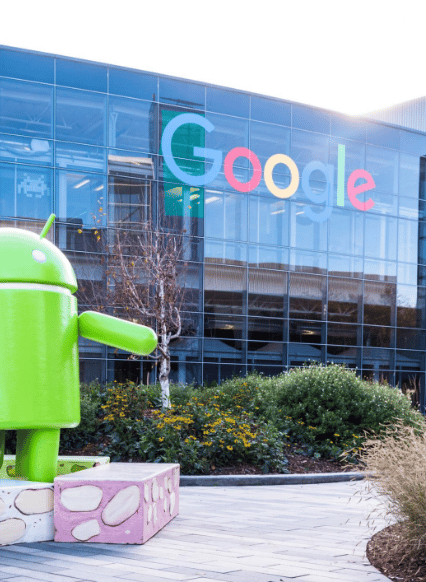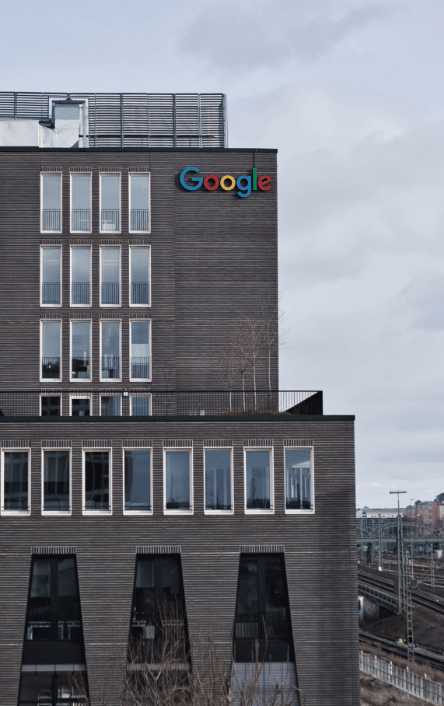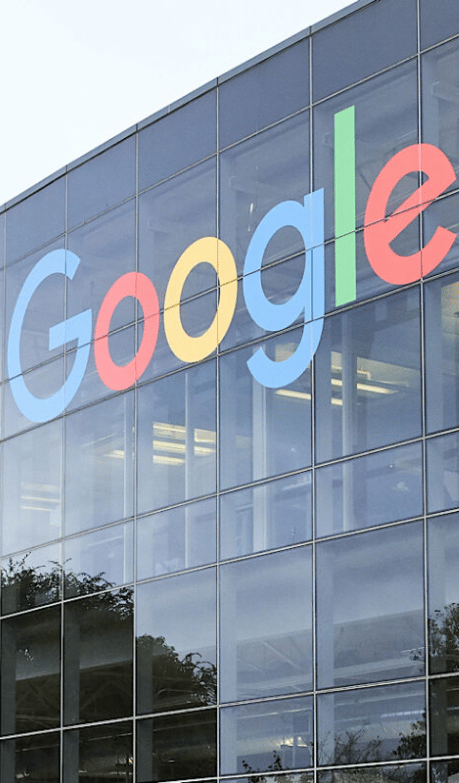Google Antitrust Lawsuits Explained
Has big tech gotten too big?
This is the question plaguing several of the largest tech conglomerates whose services are used by millions across the globe. Since October 2020, multiple antitrust lawsuits have been filed against Google by the Department of Justice and over three dozen states.
Home » Google Antitrust Lawsuits Explained
In December 2020, the Lanier Law Firm announced our lawsuit against Google. Let’s explain what it entails.
Being in a dominant position across multiple markets, the tech giant has been targeted in multiple cases. The cases focus on Google’s non-search advertising products (e.g., Google Drive, Google Mail, Google Calendar) and its search-specific advertising business, for which Google is best known.
Google has denied any wrongdoing.
Google Antitrust Trial Updates
On September 12, 2023, opening statements in the trial began in one of the first antitrust cases against a major tech company in decades. Arguments by the DOJ alleged that Google paid Apple $10 billion annually to maintain default status and that Google had intentionally destroyed evidence that showed Google was knowingly violating antitrust laws.
The bench trial is slated to last three months, with top executives from Google and parent company Alphabet Inc. expected to testify.
November 16, 2023
Today marked the last day of the evidentiary phase of the trial. Judge Amit Mehta of the U.S. District Court for the District of Columbia stated that he was undecided and set closing arguments for early May 2024.
November 12, 2023
A key witness for the defense, University of Chicago professor Kevin Murphy, testified that Google pays Apple 36% of the revenue made from search ads on the Safari browser. Google has tried to keep that figure confidential throughout the trial. Murphy also argued that Google’s dominance helps increase competition.
October 30, 2023
Google CEO Sundar Pichai took the stand today and acknowledged the importance of default status in helping a search engine stay on top. However, he maintained that the reason Google was able to secure the deal was because it was the best product available. He defended the deal with Apple, saying that Google faced a very competitive dynamic during negotiations in 2016.
October 2, 2023
Satya Nadella, the CEO of Microsoft, testified as a key witness for the U.S. Government. His testimony centered around the impacts of Google’s dominance on Bing, Microsoft’s search engine. He also gave testimony stating that it was Google’s agreement with Apple that allowed it to gain traction.
Lawyers for Google were able to get Nadella to concede that Google is a superior product, which is a key part of their defense.
Multistate Antitrust Lawsuit Updates
January 2, 2024
In an order issued today, U.S. District Judge Sean Jordan set a trial date for March 2025. Jury selection for the trial is scheduled to begin March 31, 2025.
The Lanier Law Firm filed this case in 2020 and will be representing the plaintiffs in this case. Our founder, Mark Lanier, said, “We appreciate the court’s rigorous schedule and anticipate being ready for trial on the date given,” in response to the order.

Why is Google Getting Sued?
Are these lawsuits a way to punish Google for being too big? Not exactly.
As the Federal Trade Commission (FTC) notes, there’s a distinction between healthy market competition and anti-competitive market practices.
The former is encouraged, where companies improve upon their products and services to gain market share and make consumers happier. On the other hand, the latter uses a company’s reach to push out smaller players, prevent smaller company advancement in the space, and cement the monopoly’s reach.
These antitrust lawsuits against Google all claim the former — that the tech giant used its sprawling reach to discourage competition within internet search and internet advertising, ultimately allowing it to remain the largest player and grow further with minimal encroachment from smaller companies and firms in their related markets.
Looking at the current antitrust cases against Google, there is specific evidence that points toward anti-competitive activity.
One such example is Google’s deal with phone makers like Apple, exchanging monetary compensation (up to $12 billion annually) for continued status as the default search engine for Apple’s smartphones.
Another instance of anti-competitive behavior is Google’s active efforts to crowd out organic search results with increasing ad placement frequency. This lessens the user experience on Google Search by placing advertisers ahead of companies ranking highly due to the quality of their content, products, or services. Google’s algorithms relating to ad placement may be similar in nature to Facebook’s advertising practices, which resulted in parent company Meta facing a lawsuit for social media addiction.
All of these anti-competitive market practices combined have led to multiple lawsuits against Google, the tech giant.
How Many Antitrust Lawsuits Have Been Filed Against Google?

The Justice Department Case
The first antitrust case came directly from the DOJ, with the attorneys general of eleven states initially joining the case. The primary argument of the DOJ’s case claims that Google actively prevented its rival search engines from advancing in the market through anti-competitive tactics.
One such example is a detailed complaint that shows how Google went above and beyond to ensure they were the default search engine on smartphone web browsers. Google paid Apple up to $12 billion per year to keep its search engine as Apple’s default across their product base.
The Texas Case
The second antitrust case to be filed against Google was a 10-state group led by the Texas attorney general.
Focusing on Google’s far-reaching control over digital advertising, the Texas case claims Google actively exploits its control over the pipeline.
Google controls nearly the entire advertising supply chain by facilitating the transaction for both the advertiser (buyer) and website publisher (seller) on its digital advertising platform.
With this level of control, it shouldn’t be a mystery as to how Google rakes in the advertising profits to the detriment of other ad tech firms.
Additionally, one of the strongest points of the Texas case claims Google and Facebook “unreasonably restrained trade and harmed competition through an unlawful agreement to allocate auction wins and to fix prices in violation of Section 1 of the Sherman Act, 15 U.S.C. § 1.”
This effort to suppress competition and further monopolize the advertising market provides strong ammunition for the Texas case.


The State Coalition Case
Driven by the attorneys general of Nebraska and Colorado, the next major case against Google was filed by a coalition of over 30 states.
In addition to the claims in the DOJ’s case, the state coalition case claims Google used its monopoly over internet search to actively discriminate against vertical search companies such as Tripadvisor, DoorDash, Kayak, or Yelp.
The educational website GeeksforGeeks offers a comprehensive explanation of vertical and horizontal searches.
In summary, vertical search is when websites or applications focus on a specific industry, category, or niche and aggregate content within that space.
Horizontal search can be described as a typical “general search,” where a searcher isn’t focusing on a specific content or media type.
The state coalition case claims Google’s efforts to encourage people to start their searches with Google, instead of going to Yelp, Kayak, or other vertical search websites directly, has put these companies at a disadvantage.
A press release from the Colorado attorney general’s office stated, “As a consequence, consumers lack choice and the benefits competition can bring, such as better quality and increased privacy.”
Google has changed the layout of its search results over the years to direct searchers to its own properties first (e.g., Google Hotels, Google Flights) and placed other vertical search companies lower on the results pages.
In response to the state coalition lawsuit, Google again denied any wrongdoing, claiming that the reorganization of its search results was intended to provide more relevant and useful content to its users.

What the Google Antitrust Lawsuits Mean for You
Depending on how close you are to Google’s product/service ecosystem, the effects you feel directly as a result of these antitrust cases will differ.
Casual web and smartphone users, for example, will see a wider variety of search engines available for use if Google loses in these antitrust lawsuits. Instead of being directed to Google by default, many more users will search the internet using privacy-focused search engines such as DuckDuckGo.
When booking travel, looking for hotels, or searching for activities on your next vacation, Google’s loss in these antitrust cases would place vertical search websites higher in the search results. Instead of seeing services such as Google Flights or Google Hotels above the fold, you’ll begin to see more companies like Tripadvisor, Yelp, or Kayak.
These are just a few of the impacts these antitrust lawsuits would have on the average web user, with more far-reaching effects being felt by marketers and advertisers.
What Do These Google Lawsuits Mean for the Marketing Industry?
Greater Competition, Increasing Costs
For smaller businesses with lower budgets, increasing ad costs could price them out of the market, forcing them to advertise elsewhere and find more affordable solutions to promote their business.
Major Search Engine Optimization (SEO) Changes
Search Engine Optimization (SEO) is an area of marketing focused on optimizing websites to rank higher on search engines, ultimately driving more traffic to the optimized web properties and generating more sales and revenue as a result.
Due to Google’s dominance over internet search, SEOs typically focused all of their search optimization efforts toward Google.
If Google were to lose its antitrust cases, internet users would begin to see other web browsers more frequently. This would require SEOs to optimize not only for Google but for a variety of search engines simultaneously.
Coupled with a reduced number of advertisements above the organic search results, SEO would become more important than ever for marketers in driving organic search engine traffic to their websites.
Since you can no longer just “buy an ad” and affordably bid the highest for the top spot, marketers will have to reinvent their strategies and focus more on search engine optimization rather than just search advertising.
How Will Google Antitrust Lawsuits Affect Other Big Tech Companies?
Google’s antitrust lawsuits would set a precedent for the further investigation and scrutiny of major tech conglomerates such as Facebook, Amazon, and Apple.
A popular tactic used by tech giants to further their reach and increase their market share quickly is the act of buying up smaller companies and consolidating certain industries and niches. Depending on the outcome of Google’s antitrust cases, a loss followed by further scrutiny would make it more difficult for “Big Tech” to buy their smaller competitors.
It may also change how these tech giants interact with their customers and their tactics to lock customers into their ecosystems. A great example of this is Amazon, which effectively locks in customers through Amazon Prime subscriptions and keeps millions of sellers locked into their ecosystem through the concentration of buyer demand.
The outcome of Google’s antitrust lawsuits is definitely going to impact big tech — the extent of which remains to be seen.

Why is The Lanier Law Firm going after Google?
As of December 16, 2020, Mark Lanier and the business litigation team within The Lanier Law Firm have been retained as trial counsel for the antitrust litigation against Google in the state of Texas.
The Lanier Law Firm filed a 130-page lawsuit in the United States District Court for the Eastern District of Texas, joined by nine additional state attorneys general.
In an interview with the publication Texas Lawyer, Mark Lanier compared today’s tech conglomerates with the oil barons of the 19th and 20th centuries. “Google is — in fact, several of the tech companies now — in my mind are equivalent to the oil barons who brought forth the antitrust laws,” Mr. Lanier said.
The Lanier Law Firm is doing its part to uphold the law, serve the country, and help usher in an age of just and fair opportunity for small and big businesses alike.
By submitting this form, you agree to our terms & conditions. Please read the full disclaimer



